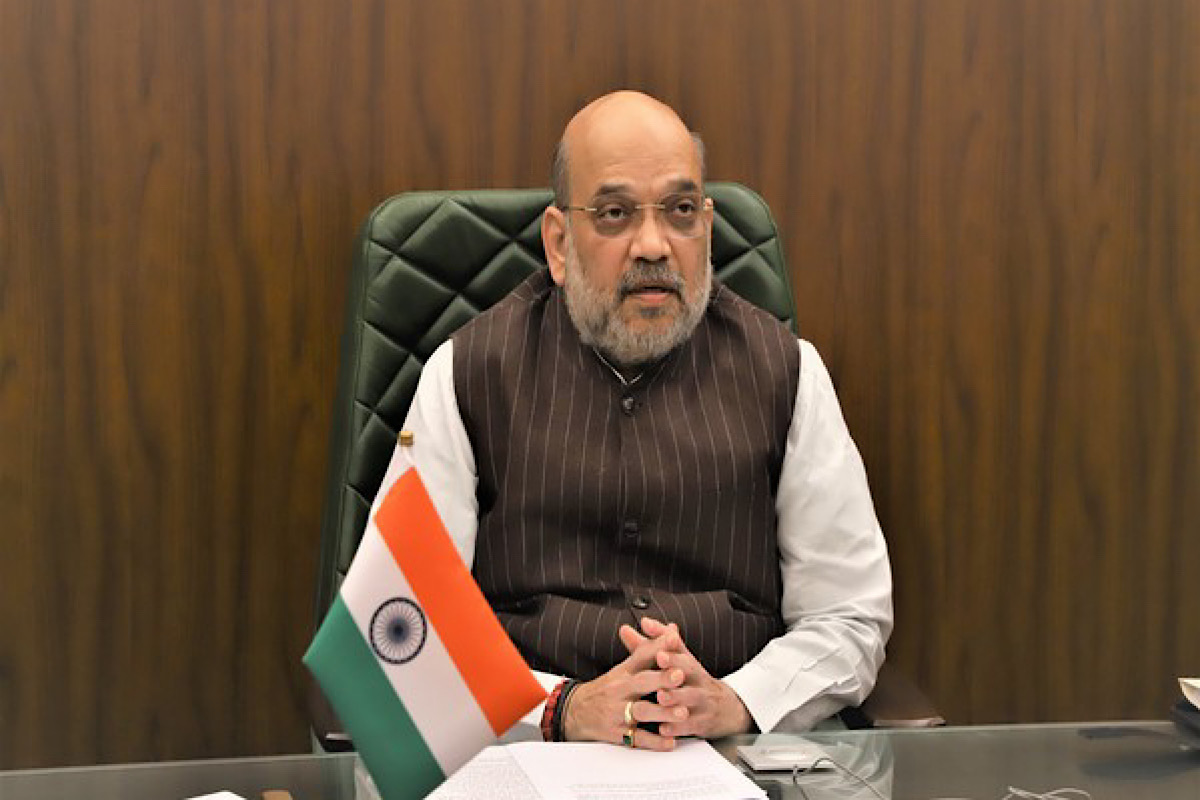Home Minister Amit Shah on Monday asked member states of the Western Zonal Council at its 26th meeting at Gandhinagar to work towards creating necessary basic infrastructure and capacity for implementation of the three Bills introduced in the last session of Parliament to reform criminal laws.
The three Bills, the Bharatiya Nyaya Sanhita Bill, 2023, the Bharatiya Nagarik Suraksha Sanhita Bill, 2023 and the Bharatiya Sakshya Bill, 2023 will replace existing Indian Penal Code, the Code of Criminal Procedure and the Indian Evidence Act. They were referred to a Parliamentary Standing Committee for scrutiny.
After the passage of the three Bills, no case can continue for more than two years, which will result in elimination of 70 per cent negative energy, the Home Minister said.
The Union home minister asked the states to give due attention to three issues of national importance – the Poshan Abhiyaan; reducing the drop-out rate among schoolchildren, and ensuring benefits of Ayushman Bharat, the Pradhan Mantri Jan Arogya Yojana, to reach the poor.
He said that the Zonal Councils provide an opportunity for personal interaction at the highest level amongst the members and serve as a useful forum for resolving issues of difficult and complex nature in an atmosphere of amity and goodwill.
Through discussion and exchange of views, the Zonal Councils help in developing a coordinated approach among the States on important issues of socio and economic development. The Zonal Councils also discuss and make recommendations on issues of common interest of the States.
He said the Zonal Councils are an important platform for cooperative federalism for resolving issues between the Centre and the States and between the States, with whole of Government Approach, which believes in consensual solution in accordance with the spirit of the Constitution. Good practices adopted by the member states/UTs were also shared in the meeting.
He said the meetings of different Zonal Councils are now convened regularly and this could happen only with the proactive initiative of the Inter State Council Secretariat under the Ministry of Home Affairs and the cooperation of all State Governments/UTs as well as the Central Ministries and Departments.
Between 2014 and 2023, a total of 23 meetings of the Zonal Councils and 29 meetings of its Standing Committees were held, whereas from 2004 to 2014, there were only 11 meetings of the Zonal Council and 14 meetings of the Standing Committees.
He said that during the meetings of Zonal Councils held between 2014 and 2023, 1143 issues were resolved, which is more than 90 per cent of the total issues, which shows the importance of Zonal Councils.
While appreciating the role of the Zonal Councils, he said though the Zonal Councils are advisory in character, but over the years, they have proved to be a significant factor in promoting healthy bond of mutual understanding and cooperation in various spheres.
Shah said that the Western Zone is an important zone of the country and with a contribution of 25 per cent to the country’s GDP, this region is the hub of finance, IT, diamond, petroleum, automobile and defence.
He said that the member states of the Western Zonal Council share long coastlines where there are highly sensitive institutions and industries and there is a need for sustained efforts towards ensuring tight security.
The meeting was attended by Chief Ministers of Gujarat, Maharashtra, Goa and Administrator of Dadra & Nagar Haveli and Daman & Diu, Deputy Chief Minister of Maharashtra and other distinguished Ministers, Chief Secretaries from the States in the Western Zone, Union Home Secretary, Secretary, Inter-State Council Secretariat and other senior officers from the States and Central Ministries and Departments.
At the zonal council meeting, the Home Minister inaugurated the e-Resource web portal https://iscs-eresource.gov.in of the Inter State Council Secretariat, MHA. This portal will facilitate functioning of Zonal Councils.
The 26th Western Zonal Council meeting discussed a total of 17 issues, out of which nine issues were resolved and the remaining issues, including issues of national interest, were kept for monitoring after in-depth discussion.












